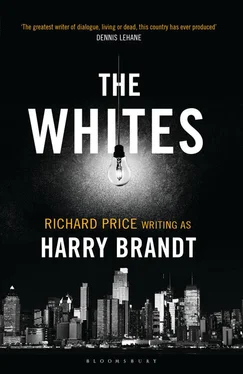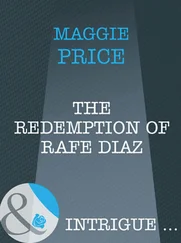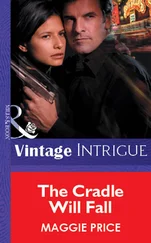The therapist, more bemused than intimidated, looked down at his notepad, reached for his pen, then thought better of it.
“And if you people try to suspend him? Or even so much as lift a finger to discipline him? We’re going to go first to our lawyer and then to the papers. And how stupid will your science teachers look when the story gets out. Don’t they watch the news? Uranus isn’t even a planet anymore.”
With that she got up and walked out, leaving Billy to placate.
“I didn’t actually see the play?” he said mildly. “But she’s kind of got a point.”
When Billy caught up to her in the school lot, he expected her to still be steaming, but instead she was close to tears.
“Tell me I didn’t just fuck up,” she pleaded, grabbing his hand. “I just get so scared for them, you know? Tell me I didn’t fuck up.”
When Billy woke up at four, the backyard was a beehive, Declan and Carlos dueling with Wiffle bats, Millie smoking up a storm behind their one tree, and his father, oblivious to the action around him, reading a book while lounging in one of their vinyl-weave lawn chairs. After returning to his bedroom for his slippers, Billy called Carmen at the hospital to see how she was holding up, made himself coffee, threw on last night’s dress shirt against the chill, and stepped outside.
In the time it took him to prep, the boys had switched from fencing to tossing a football, each Mighty Mouse sidearm heave ending with the passer collapsed on the ground, and each reception, no matter how high the ball, willed into a diving catch, Dec and Carlos apparently more interested in flinging themselves into the earth than making it to the NFL. And although his own young quarterbacking chops had not only afforded him a halfway decent adolescence but a free ride to a Division I school, Billy couldn’t care less if his kids became all-stars or ballerinas or computer geeks, as long as they learned the importance of never panicking when they got punched in the face.
Setting his mug on the backyard steps, he pulled up the waist of his pajama bottoms, dragged over one of the other aluminum-framed chairs, and took a seat by his father. The old man was half-dozing now, a creased paperback of The War Poems of Thomas Hardy sliding off his lap. A number of other well-worn paperbacks were piled in the grass at his feet, Billy not even having to look at them to know what some of them were: the collected poems of Rupert Brooke, of Wilfred Owen, of W. B. Yeats, Alan Seeger, Robert Graves, and Siegfried Sassoon. Maybe Walter de la Mare.
Billy Senior’s grandfather, a Marine, had been fatally gassed in the Battle of the Argonne Forest in 1918; for his daughter, Billy Senior’s mother, who had been nine at the time, her father’s martyred absence became a permanent, supernatural presence. As a result, for as long as Billy could remember, his own father, brought up haunted by a man he never knew, had been obsessed with the Great War, especially the literature that it produced.
When he became head of student safety at Columbia University at the age of fifty-eight, Billy Senior, exploiting one of his job perks, immediately began to audit classes. He took basic 101s his first year, intermediate-level courses his second, advanced his third. He never participated in discussions or took exams, but he did all the required reading on his own, keeping a low profile year in, year out. Then, wanting to test himself in his fourth year, he wrote a paper on the work of soldier-poet Isaac Rosenberg and handed it in, never expecting the teacher to read it, let alone to raise it above his head in the auditorium the following week and ask, “Who’s William Graves?”
The same professor, using his connections abroad, secured a scholarship for him to the annual three-week summer seminar on Literature and the Great War, in either Oxford or Cambridge, Billy could never remember which. That July, Billy Senior attended classes while Billy’s mother either tooled around town or took day trips to the south of England, the only time his parents had ever traveled together outside of the U.S. The summer after his mother died, his father went back to England on his own, the first of eleven solo summer pilgrimages until the time came when he was no longer able to travel by himself.
Of all his father had accomplished after retirement from the NYPD — heading up campus security for a major university, doing the same work for Mount Sinai Hospital and for the New-York Historical Society — nothing had impressed Billy as much as watching this high-school-educated man in his fifties slip into those high-wire Ivy League classes to shadow-educate himself, Billy Senior taking to scholarship the same way many other men his age and station in life took to grandparenting and TV.
Tossing the remainder of his coffee onto the grass, Billy leaned over and picked up the collected Yeats, slowly flipped through the book, and saw his father’s exquisite but strangely unreadable handwriting on nearly every page.
“What you got there?” Billy Senior asked, rising up from the tar pit.
“You used to read to me from this when I was a kid, you remember? ‘The Second Coming,’ it scared the crap out of me.”
“How about returning the favor.”
“Read to you?” Billy looked around the yard. “With my delivery? You might as well ask me to break-dance.”
Billy Senior sat up a little, opened his eyes. “I remember working the Bronx for a while back in the late seventies when they started having those block parties with turntables and the disc jockeys scratching up the records, everybody spinning around on cardboard flats, spouting out these bragging rhymes…”
“You should hear some of your grandson’s stylings,” Billy said.
“… next thing you know every kid with a portable tape recorder’s marching up and down the streets belting out bad poetry.”
“It’s still kind of like that out there.”
“Look, I don’t mean to sound like some cranky old white guy and it’s not like I didn’t appreciate what that stuff was doing on the positive side in those neighborhoods, it was just, aesthetically? I hated it.”
“Well, they can’t all be Sam Cooke.”
“Nothing wrong with rhythm and blues, my friend. Some of those singers were true bards.”
Billy had to smile. The designation “bard” had always been his father’s highest form of praise, synonymous with “sublime” and just a shade under “godlike.”
“Dad, do you remember my friend Jerry Hart? After his freshman year at Fordham he came home and told his father that he wanted to be a poet. You know what Mr. Hart said to him? ‘Anybody’d write a poem would suck a dick.’ Excuse my French.”
“Cocksucker,” Senior said without heat.
“What?” Billy had never heard his father say anything worse than “shit,” and rarely that.
“Cunt licker.”
The boys stopped playing.
“Cocksucking motherfucking kike-faced little nigger boy.” Another bland delivery.
Billy signaled for Millie to bring the kids into the house.
“Dad, what’s happening.”
“Are you going to read to me?” his father said.
“What?”
“You said you’d read me something,” gesturing to the Yeats still in Billy’s hands.
“What just happened.”
“Happened with what?” Senior’s eyes remained clear and untroubled.
Billy took a moment. “All right,” he finally said. “Hold on.”
Flipping through the Yeats, nervously rejecting poem after poem as being either too long, too beyond his understanding, or having too much unpronounceable Gaelic, he defaulted to the horror poem of his youth. But after quickly scanning the first few lines — the wildly spiraling falcon, the blood-dimmed tide, each image troubling him more than they ever had before, and then returning to “things fall apart, the centre cannot hold”—he closed the book.
Читать дальше












